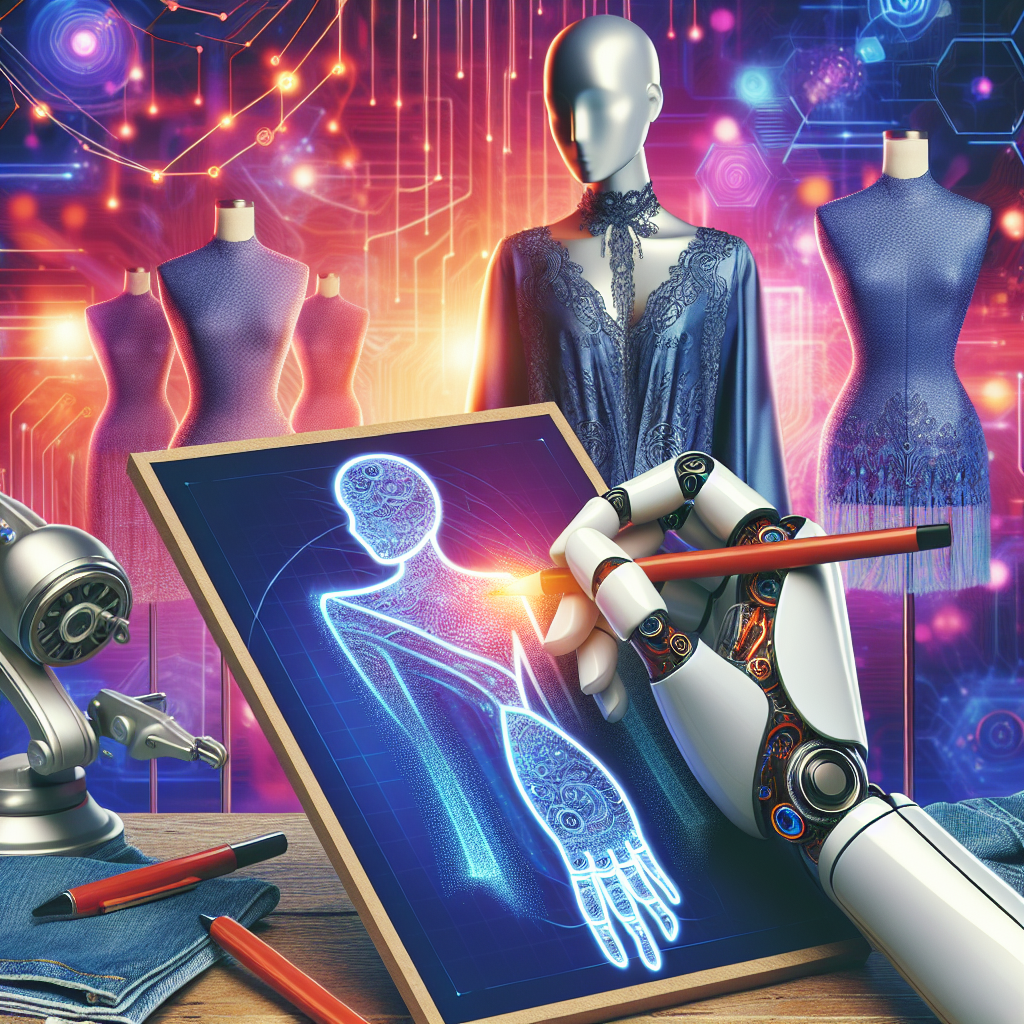Artificial Intelligence (AI) has revolutionized many industries, and the fashion industry is no exception. The partnership between AI and fashion has opened up new possibilities and opportunities for both consumers and businesses. From personalized shopping experiences to trend forecasting, AI is shaping the future of fashion in exciting ways.
One of the biggest impacts of AI on the fashion industry is in the area of personalization. With the help of AI algorithms, fashion retailers can now offer personalized recommendations to customers based on their preferences and browsing history. This not only enhances the shopping experience for customers but also helps businesses increase sales and customer satisfaction.
AI-powered chatbots have also become increasingly popular in the fashion industry. These chatbots can assist customers with product recommendations, sizing information, and order tracking, providing a more seamless and efficient shopping experience. By leveraging AI technology, fashion brands can improve customer service and streamline their operations.
Another key area where AI is making a significant impact in fashion is trend forecasting. By analyzing vast amounts of data from social media, runway shows, and street style, AI algorithms can predict upcoming fashion trends with a high degree of accuracy. This allows fashion brands to stay ahead of the curve and create collections that resonate with consumers.
AI is also being used in the design process, with some fashion houses employing AI algorithms to generate new designs and patterns. This not only speeds up the design process but also allows designers to experiment with new styles and aesthetics. By combining human creativity with AI technology, fashion designers can push the boundaries of innovation and create truly unique and cutting-edge designs.
In addition to personalization, trend forecasting, and design, AI is also being used in the supply chain and logistics of the fashion industry. By optimizing inventory management, predicting demand, and automating processes, AI technology can help fashion brands reduce costs, minimize waste, and improve efficiency. This is especially important in today’s fast-paced and competitive fashion landscape.
Despite the many benefits of AI in the fashion industry, there are also challenges and concerns that need to be addressed. One of the main concerns is the potential impact of AI on jobs in the fashion industry. As AI technology becomes more advanced, there is a risk that certain jobs, such as retail sales associates and fashion designers, could be replaced by AI-powered systems. This raises questions about the future of work in the fashion industry and the need for workforce reskilling and upskilling.
Another concern is the ethical implications of AI in fashion, particularly in the areas of data privacy and sustainability. As fashion brands collect more data from customers to personalize their shopping experiences, there is a growing need to ensure that this data is used responsibly and ethically. Similarly, as AI technology becomes more prevalent in the fashion industry, there is a need to address the environmental impact of AI systems and ensure that they are sustainable and eco-friendly.
Despite these challenges, the partnership between AI and fashion holds great promise for the future of the industry. By leveraging AI technology, fashion brands can create more personalized and engaging shopping experiences for customers, improve operational efficiency, and drive innovation in design and trend forecasting. As AI continues to evolve and become more integrated into the fashion industry, we can expect to see even more exciting developments and advancements in the years to come.
FAQs:
1. How is AI used in the fashion industry?
AI is used in the fashion industry in a variety of ways, including personalized recommendations, trend forecasting, design generation, and supply chain optimization. AI algorithms analyze data from social media, runway shows, and customer preferences to provide personalized shopping experiences, predict upcoming fashion trends, generate new designs, and optimize inventory management.
2. What are the benefits of AI in the fashion industry?
The benefits of AI in the fashion industry include enhanced personalization, improved customer service, trend forecasting, design innovation, and supply chain optimization. By leveraging AI technology, fashion brands can create more engaging shopping experiences for customers, increase sales, reduce costs, and drive innovation in design and trend forecasting.
3. What are the challenges of AI in the fashion industry?
Some of the challenges of AI in the fashion industry include the potential impact on jobs, ethical implications, and environmental concerns. As AI technology becomes more advanced, there is a risk that certain jobs in the fashion industry could be replaced by AI-powered systems. There is also a need to address data privacy, sustainability, and ethical use of AI technology in the fashion industry.
4. How can fashion brands leverage AI technology?
Fashion brands can leverage AI technology in various ways, such as personalized recommendations, trend forecasting, design generation, and supply chain optimization. By implementing AI-powered systems, fashion brands can create more personalized shopping experiences for customers, predict upcoming fashion trends, innovate in design, and optimize their operations for increased efficiency and sustainability.

